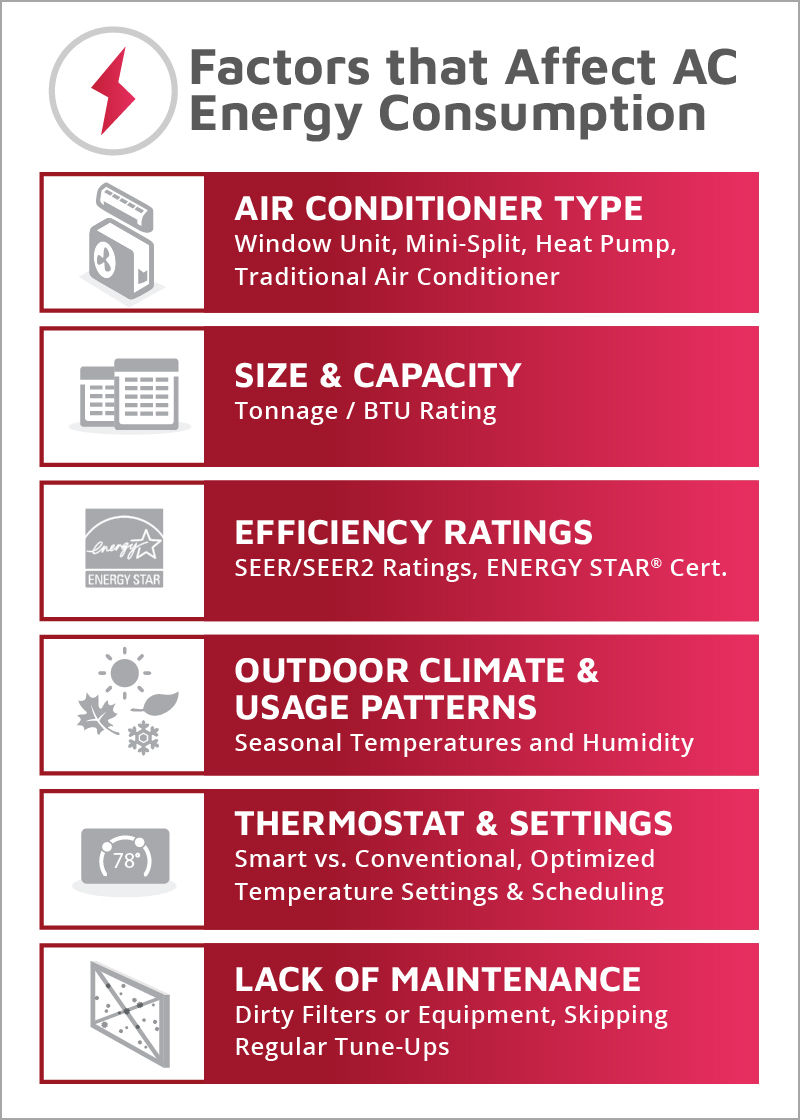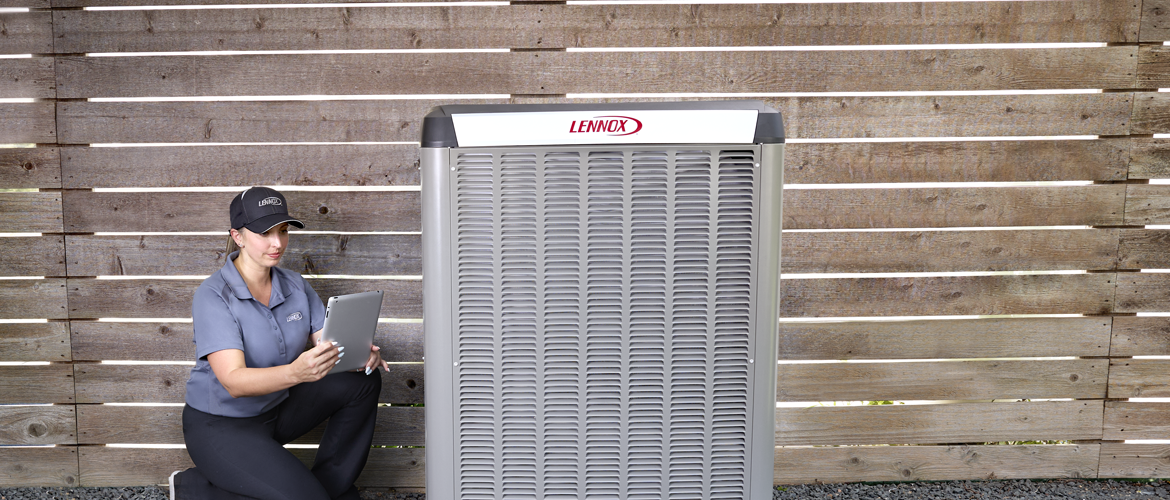If you’ve ever looked at your electric bill during a hot summer month and wanted to know how much your air conditioner is costing you, understanding air conditioner wattage is a great place to start. Wattage is more than just a number on a label, it's a critical measurement of your HVAC system’s performance, efficiency, and operating cost. In this article, we’ll help you understand what wattage means, how it affects your AC’s energy use, and what you can do to manage it.
What Is Wattage and Why Is It Important for Air Conditioners?
Wattage is a unit of electrical power that measures how much energy is consumed by an electrical device or appliance. The usage you’re probably most familiar with is in light bulbs. Light bulbs are one of the simplest ways to illustrate what wattage means. When selecting a bulb, the higher the wattage, the brighter the bulb – and the more power it takes to illuminate it.
Though calculating the wattage is a bit more complicated than that for complex equipment like HVAC systems, the idea is the same. The wattage measurement assigned to an air conditioner tells you how much energy that air conditioner uses while operating. For example, a typical central air conditioner unit may use anywhere from 2,000to 5,000 watts per hour, depending on its capacity and efficiency.
Why Wattage Matters
For homeowners, understanding wattage can be the key to managing energy bills and optimizing system performance. The more watts your system consumes, the more electricity it draws from the grid – and the higher your monthly bill. Tracking wattage helps you identify whether your system is running efficiently or if it might be time for a tune-up or an upgrade.
How to Calculate the Cost of Running Your Air Conditioner
To better understand your air conditioner's impact on your energy bill, you can use a simple formula to estimate your monthly costs:
(AC Wattage ÷ 1,000) × Hours Used per Day × Days Used per Month × Electricity Rate (kWh) = Monthly Cost
For example, if your 3,000-watt air conditioner runs for 6 hours a day over 30 days, and your electricity rate is$0.13 per kWh, your formula would look like this:
(3,000 ÷ 1,000) × 6 × 30 × 0.13 = $70.20 per month
You can find your local electricity rate on your utility bill or energy provider’s website. For added precision, online tools like the Energy Bot Air Conditioner Calculator can help estimate real-world usage.
Factors Influencing Air Conditioner Wattage Usage
There are three key factors that can affect the performance and efficiency of your air conditioner.

- Size and Capacity of the Unit
The larger the air conditioner – in both physical size and BTU capacity –the more wattage it generally requires. A small window unit might use 500–1,500 watts, while a full-sized central system could draw over3,500 watts depending on its efficiency ratings. - Environmental Conditions
Hotter climates or poorly insulated homes can force your air conditioner to work harder and longer, increasing wattage use. High humidity can also affect performance, requiring more energy to remove moisture from the air. - System Age and Efficiency
Older systems or units that haven't been maintained properly often consume more electricity due to inefficiency. ENERGY STAR®-rated units, like those offered by Lennox, are engineered for lower wattage and optimized energy consumption.
Tips for Reducing Air Conditioner Wattage Usage
Though a wattage rating is a static measurement of performance and energy use, it is determined under specific conditions, and there are certain things you can do as a homeowner to optimize the wattage your air conditioner uses over time.
- Schedule Regular Maintenance
Routine tune-ups by an HVAC professional along with regular maintenance such as cleaning the coils and replacing air filters can help optimize performance, helping your air conditioner run more efficiently and consume less power. - Upgrade to a Smart Thermostat
Adding a smart thermostat to your system allows you to set more efficient temperature schedules, reducing unnecessary run time. Setting your thermostat to 75°F when home and higher when away can significantly lower wattage usage, especially during peak hours.
- Seal and Insulate Your Home
Proper insulation and sealing leaks and gaps around doors and windows can make your air conditioner’s job a little easier – requiring fewer watts to cool the same space.
When to Consult a Professional about Wattage Concerns
If you notice your energy bills rising, your home feeling less comfortable, or your system running longer than usual, it may be time to bring in a pro. These are common signs that your system may be using more wattage than necessary.
How a Lennox Professional Can Help
A certified Lennox Dealer can evaluate your system’s energy consumption and recommend upgrades or maintenance to reduce wattage usage. Whether it’s resizing your system, installing a more efficient model, or improving ductwork, professional insights can result in long-term savings.
Understanding wattage and how it relates to your air conditioner is an essential part of being an informed homeowner and maintaining a budget. By learning how wattage impacts your energy use and what you can do to manage it, you’ll not only reduce costs but also increase the lifespan and efficiency of your HVAC system.
For a custom solution designed around your comfort and energy needs, contact your local Lennox Dealer today.

